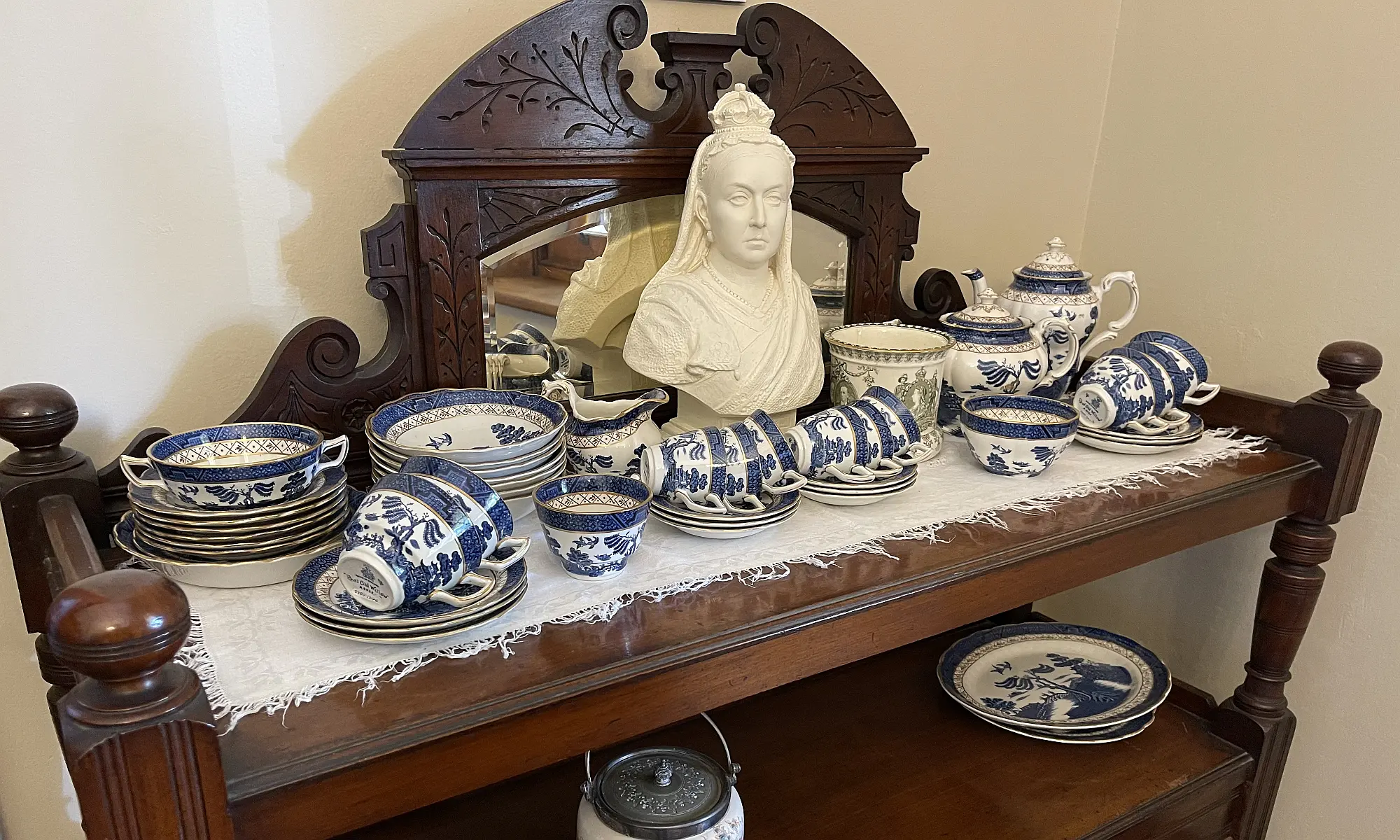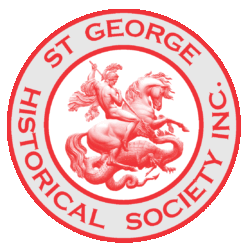by B.J. Madden

Within what is now the Bexley Golf Course was a slaughter-house operated by C J Stone. The slaughter-house was adjacent to the creek which flows through the eastern end of the golf course, and blood from the slaughtered cattle ran into the creek. Blood was also buried in trenches in a paddock near Moore Street. There were holding yards adjacent to the slaughter-house. The wine bar was on Stoney Creek Road and at the western end was Jauncey’s Dairy. The land for the slaughter yard was leased from Smithsons.

The Stone family have been connected with butchers shops in the district since 1868. This was when the original Dick Stone commenced serving meat in the Rockdale-Bexley area. Many other shops were opened. Great-great-great-grandsons of the original Dick Stone still work in butchers shops in the district.
It is not clear when C J Stone, who was a son of the original Dick Stone, and other sons, commenced to slaughter on the site at Bexley, but it may have been in the late 1890’s. The first listing of a slaughter yard at this spot in Sands Sydney and Suburban Directory was in 1898, with James Smithson’s name. 1899 and 1900 Directories are the same, but 1901 lists Keep and Stone.
An article in the Town and Country Journal of 24 November states that, when the Bexley Municipality was created in 1900, Stone and Keep were the lessees (and J Smithson, owner) of one of the two operating slaughter-houses in the municipality, and that there were two others not being used at the time.
Operations ended about 1920. The 1920 Sands Directory lists Charles J Stone, but 1921 Directory lists a Metropolitan Meat Co. Ltd. Depot. This was when all private slaughter-houses within 60 miles of Sydney had to close and all slaughtering had to be carried out at abattoirs, originally by the Metropolitan Meat Co. at Auburn, and later at Homebush.
Butcher’s wagons transported meat from the Bexley slaughter-house to local butchers, as well as to Stones’ shops.

Cattle, sheep and pigs were all driven through Kingsgrove to the slaughter-yards from the saleyards at Homebush and other places, and old residents tell of the noise as the mobs of cattle were driven through Belmore and down Kingsgrove Road at night. Because the sales were usually held on Mondays and Thursdays, it would be Monday and Thursday nights that the cattle were driven through.
About 1928, while the Tempe-East Hills railway line was under construction, Bill Setten Stone opened a butcher shop in Kingsgrove Road near the railway station, next door to the present Grove Inn. At the time, the only other building in the vicinity was the weatherboard estate agency. Deliveries were by horse- drawn carts, and the horses were stabled at the back. Bill liked to find an excuse to give children a ride on a horse or in a cart. Mr Stone continued the business until he sold out in the mid 1970’s.
This article was first published in the May 1981 edition of our magazine.
Browse the magazine archive.

